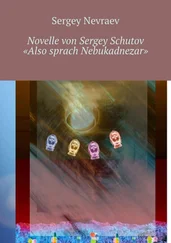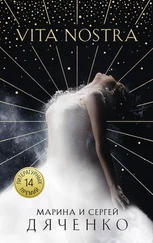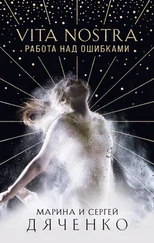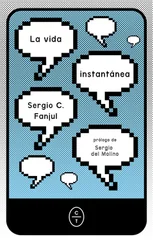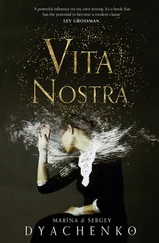Short beeps.
* * *
“Time is a grammatical concept, is that clear, or do I need to explain?”
“It’s clear.”
“Before you start manipulating time, you must set up an anchor. ‘Now—Then.’ Represented graphically, it looks like this. A bobber with two poles, red and white. Don’t rush, Sasha! We’re getting ahead of the program, we don’t have to…”
“I know. I can feel it. Now. “
“Good. The anchor shifts into the ‘Then’ condition as soon as you change the grammatical construction. Aside from the basic vector—past-future—you must consider the overall duration of the action, the periodic nature of the action, the finality or incompleteness of the action, the relationship between the beginning and the end of the action and the ‘Now’ point… Sasha, put down the pen! Don’t rush! It’s an extremely complex exercise; very few third years are brave enough to approach it!”
“I am ready.”
“I see. Well then. Let us take a half of the grammatical measure, half a measure backwards. Concentrate. Time is a grammatical concept, is that clear, or do I need to explain?”
“It’s clear.”
“Before you start manipulating time, you must set up an anchor. ‘Now—Then.’ Represented graphically, it looks like this. A bobber with two poles, red and white. Don’t rush, Sasha!”
“Nikolay Valerievich, we’ve done this already. If we don’t shift the construction one minute back… I mean, half a measure back, we are going to continue moving in circles!”
“Practice makes perfect…Relax, Sasha. Calm down. The reverse reconstruction is a little bit more complex, now the bobber changes colors… Now—Then. Recognize this.”
“I got it! I… will try. It was, it went on, it repeated, it ended… Ended. Now .”
“Bravo! Want to try again?”
“Yes.”
“Let’s begin. Time is a grammatical concept, is that clear, or do I need to explain?”
* * *
She would go to the river bank. She would make a snowball, warmed it up in her bare hands to make sure it stayed firm. She would throw it straight up. Time after time. A janitor who was shoveling snow on the Lugovaya Street probably thought the girl was skipping classes, openly loitering.
The snowball separated from her palm. It went up into the zenith and froze for a moment. It flew down but did not fall. Again, it went up into the zenith. Flew down. From “is” it shifted to “was,” then went into the “had been” loop, and Sasha’s heart kept repeating the same beat.
The janitor pausing for a smoke break watched the girl juggling a snowball. The smoke from his cigarette stood motionlessly in the air, glimmering like a television screen.
“Now,” Sasha did not say or think it. Sasha did it, returning herself into the previous grammatical tense, to the point of ‘Then,’ where she’d set up the anchor.
The snowball fell and drowned in a snow pile. A lantern lit up at the corner of Lugovaya Street. It was getting dark very fast. Sasha’s hands, red and frozen, burned like fire.
A person needs two eyes to determine the exact distance to objects. Two points of view that form an angle. That’s what Portnov was telling them during lectures: your projection onto the nearest future and your projections onto the nearest past are set closer than the eyes on your face, but they guarantee stability to your personal time frame. “Was” and “will be”—two bearings, two legs, when you walk, you can shift the center of gravity a bit forwards, or a bit backwards…
Sasha ran over the snow— slightly ahead of herself, then slightly behind. I was! I will be! Snow flashed white sparkles; Sasha’s shadow became short and fell under her feet, then crawled forward and became longer the further Sasha moved away from the streetlight.
The janitor watched her run.
* * *
“The language of creation knows no grammatical tense. It has only one mood—the imperative. The first derivative from creation uses the subjunctive mood. The second derivative uses the narrative. “
“But does Name exist in time?”
“Yes. Realized Name becomes a process.”
“If Name is a process, then what is the connection between names and verbs?”
“Do you remember high school physics? Remember the wave-particle duality?”
“Well… in principle.”
“Abysmal ignorance… There is motion and statics. Action and its object. The speed, mass and length of a wave. Names are building blocks of creation. Verb is a command to build, a will in its purest form. An impulse. Concentrated action. Verb can pull a name out of non-existence, and it can send it into non-existence by a single command. All the verbs I’ve even known were egocentric, narcissistic, and meant to succeed…. Geared toward creation at any cost.”
“I see. Then how…”
Sasha looked up at Portnov and promptly forgot her question.
Portnov wore jeans and sweaters. He had blonde hair that was beginning to go gray, glasses with narrow lenses, and cold blue eyes. He was a not a particularly pleasant person, he could be quite rude; Sasha never thought of him as a man, never wondered whether he had a family, a wife, a mistress, any children. Portnov was a teacher, a whip-cracker, an animal tamer. Portnov was Portnov.
Whoever was sitting in front of Sasha was not human. Moreover, it had never been human. For the first time in her life Sasha saw—recognized, understood—what exactly was an “embodied function.”
“What happened, Samokhina?”
Sasha stared at him, forgetting to breathe, completely in awe. A glossary? An activator? A textbook? A textbook that was given a human name?
“Oleg Borisovich…” Sasha whispered.
She saw him again: hair pulled into a ponytail. A grey sweater with blue stripes. An attentive glance over the lenses.
“What?”
“You…”
“What about me?”
Sasha swallowed bitter saliva.
“You’ve just seen me?” Portnov sounded surprised. “You manifest entities, read highly complex informational structures, and you’ve only just seen me?”
Sasha managed a shallow nod, and then shut her eyes, trying to drive the tears back into her eyes.
“What’s the matter?” now Portnov sounded worried. “Sasha?”
“You are not human,” Sasha whispered.
“So? Neither are you.”
“But I had been human. I had been a child. I remember that. I remember being loved.”
“Does it matter to you?”
“I remember it.”
‘Trust me, I can remember anything you want. I remember being a child. Being raised by monkeys. Being a girl. Working as a cabin boy. Saving a baby out of the fire, scoring the best goal during the world championship. Memories are projections of events, and in this case it is much less important whether the events are real or not.”
Sasha’s tears rolled down her face, smearing her makeup, leaving black traces on her cheeks and fingers.
Portnov took off his glasses:
“Are you feeling sorry for me?”
Sasha shook her head.
“Are you lying because you are afraid of hurting my feelings?”
He knows everything about me, Sasha thought. He spent so many years turning people into words that it is possible he knows more about us that we know ourselves.
She located a handkerchief in her bag and began to dry her eyes with such effort as if she were trying to rub them entirely off of her face. Portnov watched her with surprise and sympathy:
“Are you scared? Is it unpleasant? Are you simply that used to considering me a human being?”
Sasha sniffed and shook her head.
“Emotional memory,” Portnov murmured. “You have already become a butterfly, but are still trying to crawl. You remember being a caterpillar. Samokhina, get a hold of yourself. We are losing time, and this session is not made of rubber, don’t you agree?”
Читать дальше
Конец ознакомительного отрывка
Купить книгу
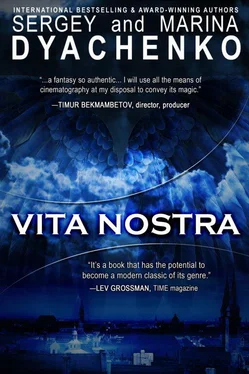


![Марина Дяченко - Vita Nostra. Работа над ошибками [litres с оптимизированной обложкой]](/books/434876/marina-dyachenko-vita-nostra-rabota-nad-oshibkami-thumb.webp)
